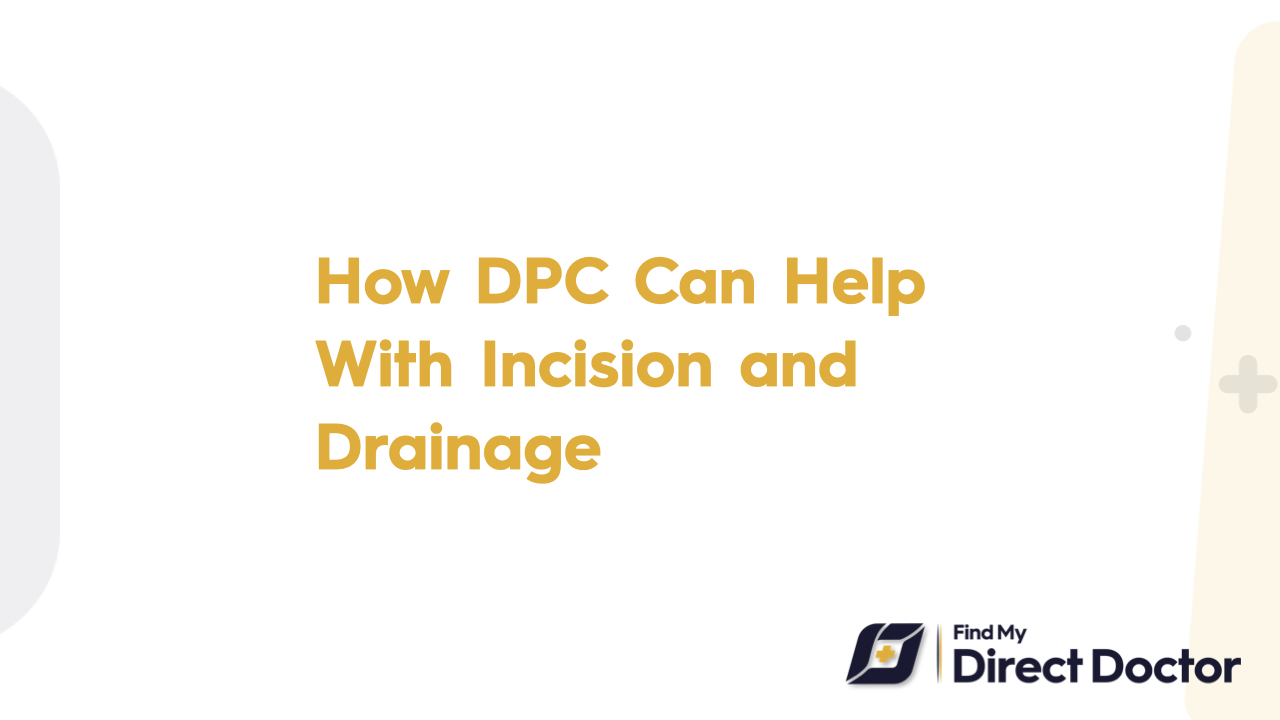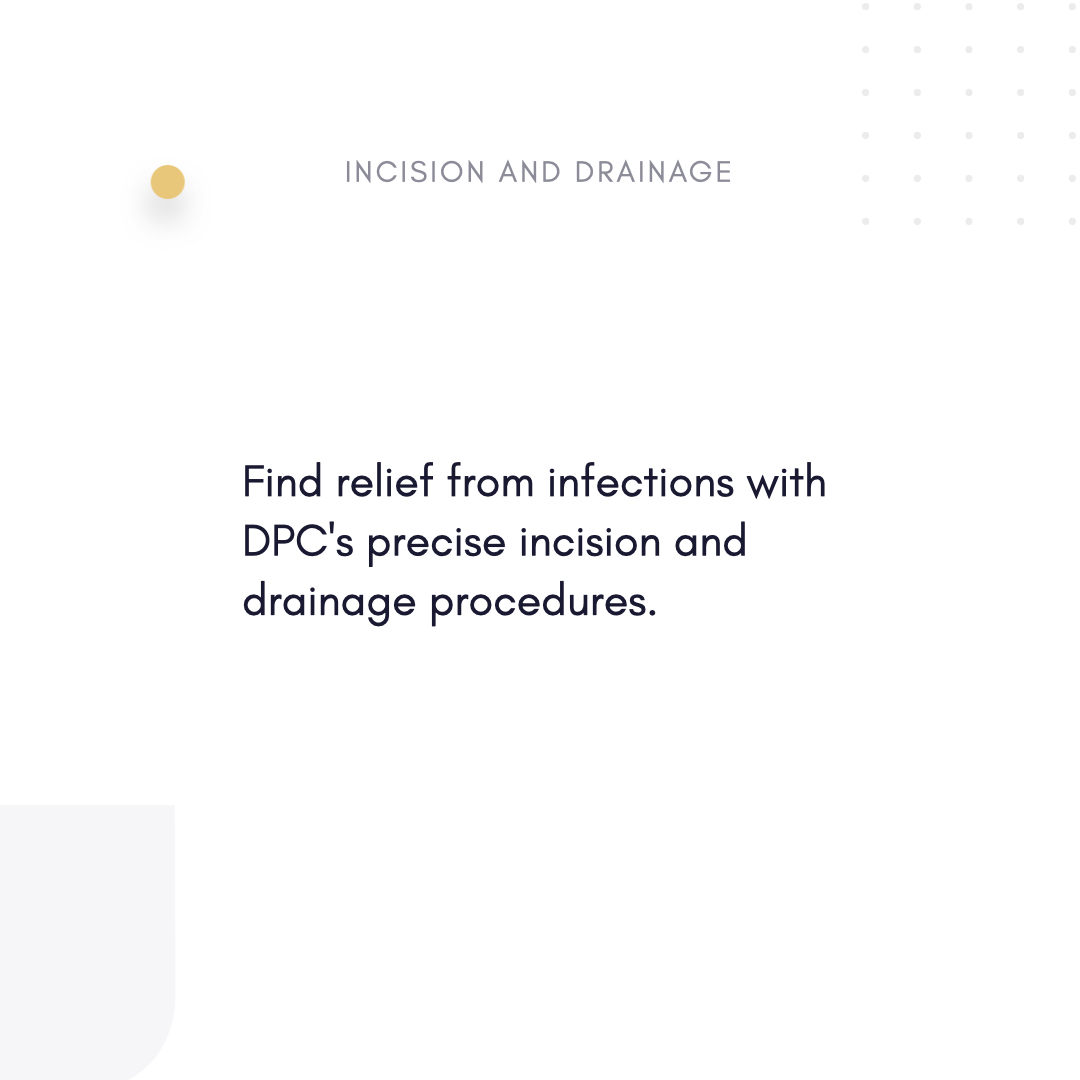Incision and Drainage (I&D) and Direct Primary Care (DPC): Prompt Relief, Personalized Care
An incision and drainage (I&D) procedure can quickly relieve the pain of an abscess or infected cyst that is getting in the way of your life. DPC makes sure that this small surgery is done quickly, safely, and with close follow-up.

Understanding I&D: Getting rid of the infection and making you feel better
- Numbing the area with local anesthesia is part of incision and drainage.
- A small cut to let out pus and other stuff.
- Packing (if needed) to keep the wound open so that fluid can flow out.
Pilonidal cysts, skin abscesses, and paronychia are common places.
Patients should know this important information:
- Uses: Treats infected boils, bacterial abscesses, and sebaceous cysts.
- Safety: Low risk; bleeding or scarring may occur.
- Prices: Regular clinics charge between 200 USD and 500 USD, but DPC lowers costs by offering care in packages.
If you wait too long to get help, you could get:
- Cellulitis, sepsis, or an infection in deeper tissue.
What DPC Changes I&D Care
With Direct Primary Care (DPC), you don't need to go to urgent care; instead, you get fast, patient-centered care.
1. Quick access and good care
- Same-day appointments: Get rid of abscesses within a few hours of them starting.
- No waiting in the ER; the procedure is done in the office with local anesthesia.
- Culture swabs: Find bacteria like MRSA so that antibiotics can kill them.
2. Clear costs and help all around
- Prices that cover everything: As a member, you get procedures, follow-ups, and changes to packing.
- Less money: Patients at DPC save between 100 USD and 300 USD by paying for their own care.
- Other options: Talk about how to use warm compresses on abscesses that are not yet changing.
3. Getting better and staying healthy with kindness
- Access 24/7: If you suddenly get red, have a fever, or feel pain, get help right away.
- Personalized wound care: Demonstrate the proper method for cleaning and dressing wounds.
- Preventive advice: Tell them to practice good hygiene to stop it from happening again.
Real-Life Success Stories
- Case 1: Sarah, 28, has a painful breast abscess in Case 1. Sarah's DPC provider drained the abscess in the office, so she didn't have to wait in the emergency room.
- Case 2: John, who is 35 years old, has pilonidal cysts that keep coming back. John's DPC team did an I&D and gave him antibiotics. Then they sent him to a different doctor for elective excision.
Questions and Answers: I&D in DPC
- Q: How long does it take?
- A: 10 to 20 minutes. DPC makes sure there isn't much pain with the right anesthesia.
- Q: Do I need to take antibiotics?
- A: Yes, most of the time. DPC writes prescriptions based on the patient's allergy history and culture results.
- Q: How do I take care of the wound at home?
- A: DPC gives you written instructions and things like saline and gauze.
- Q: What happens if the abscess comes back?
- A: DPC looks into the root causes of problems (like hidradenitis) and sends patients to specialists.
Why DPC is Great at Small Operations
The American College of Emergency Physicians (ACEP) says that I&D should be done quickly. DPC gets things done by:
- Less time spent waiting: In the ER, it took more than 24 hours to drain 90% of abscesses.
- Reducing complications: Using the right method cuts the risk of recurrence in half.
- Saving money: Members save 150 USD to 400 USD by getting care in a package.
Final Thoughts
An I&D in DPC isn't just about getting rid of pus; it's also about making you feel better quickly and correctly. With DPC, you have a partner who acts quickly, explains everything, and helps you get better. No chaos in the ER, no surprise bills—just kind care that gets you back to life without any infections.






